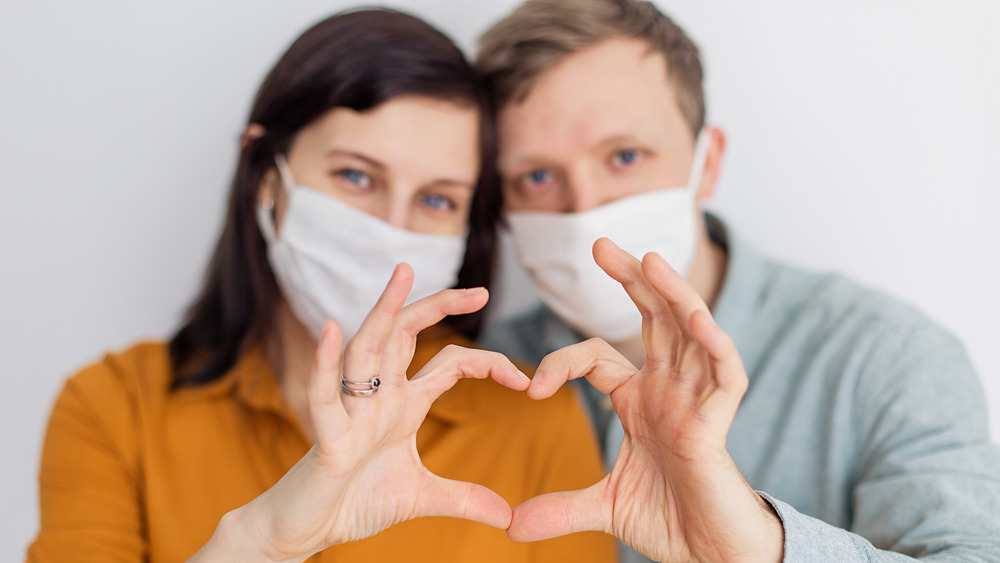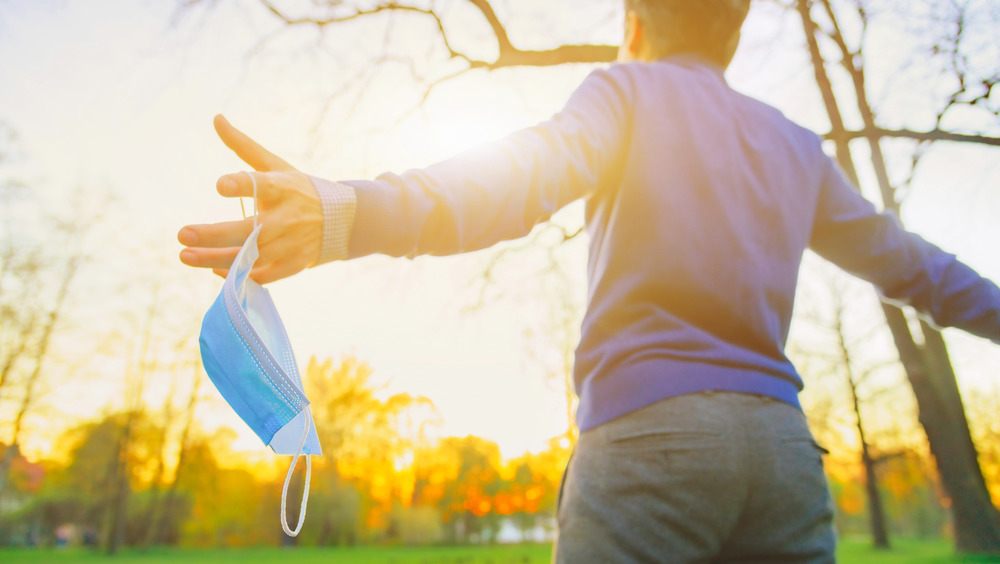What Happens If Your Partner Gets The COVID-19 Vaccine Before You?
If your loved one or significant other has been fortunate enough to receive the COVID-19 vaccine, you may be wondering how that could change your life. Can you relax COVID precautions at home, and are you, still unvaccinated, offered any protection through your partner's vaccination?
The truth is, vaccines are a great benefit to the people who receive them. They will prevent against falling seriously ill if the vaccinated person contracts COVID-19 (via CNN), but they are not a cure-all, and caution is still warranted.
Studies are still being conducted to find out if people who receive the COVID-19 vaccinations have a lower chance of contracting the virus entirely, or if they are only protected from severe illness. At this point, it is believed that someone vaccinated could still catch the virus, be asymptomatic, but spread it to others. Sachin Nagrani, M.D., medical director of the home healthcare company Heal, told Bustle, "The vaccinated partner should continue precautions such as wearing a mask and social distancing in public to protect themselves from an infection that could in theory be transmitted to their loved ones."
New guidelines for fully vaccinated people
It's also important to remember that just because someone has received their second vaccination dose, it doesn't mean they are fully protected. It takes a period of several days to weeks for the body to build up an immune response that provides protection (via NBC News). So, for about two weeks after the second shot, a recently vaccinated person should still consider themselves vulnerable.
The Centers for Disease Control and Prevention (CDC) updated their guidance for fully vaccinated people, slightly relaxing the recommendations for gatherings. Someone who is two weeks past their vaccination can now gather with other vaccinated people without masks. They can also gather with unvaccinated people of one family without masks, as long as nobody has high-risk health conditions.
Fully vaccinated people also don't need to quarantine or get tested if they are exposed to someone with COVID-19 unless they have symptoms or have tested positive, of course. But for the sake of those they live with, and their own health, they should continue to monitor themselves for symptoms of the virus.
So, while it's great to have half of a couple vaccinated, it's not a blank check to forgo precautions. Protecting the unvaccinated partner through masks, social distancing, and hand-washing should still be part of the plan.


